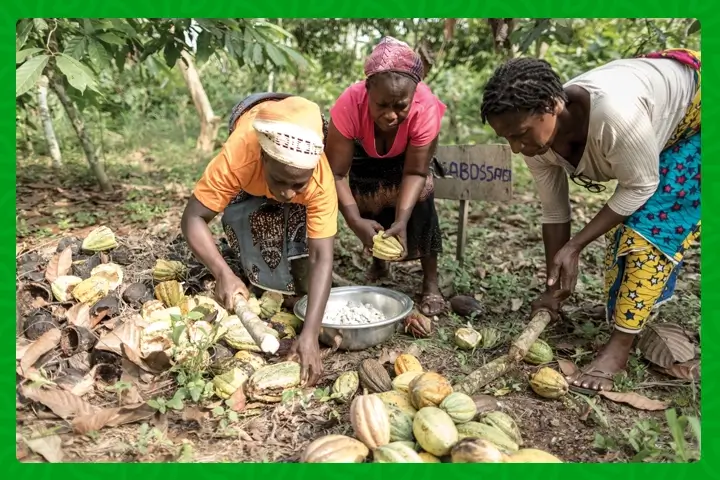
Civil society groups in West Africa, united under the banner of the African Platform for Sustainable Cocoa, are rallying for the European Union’s intervention to protect Living Income Differential (LID) payments to cocoa farmers. As the cocoa industry grapples with a critical issue, the commitment to better remuneration for cocoa producers hangs in the balance. This article delves into the concerns raised by these groups and the importance of safeguarding the livelihoods of cocoa farmers in West Africa.
LID Payment Challenge:
According to the African Platform for Sustainable Cocoa (AFSC), the cocoa industry is reneging on its promise to pay cocoa farmers the current market price plus the LID. This development has sent shockwaves through the cocoa community, threatening the progress made in achieving cocoa sustainability and the quest for fair compensation for the hardworking farmers.
Market Discrepancy:
AFSC points out that in Cote d’Ivoire and Ghana, where hopes had risen for higher cocoa prices after years of low returns, the farmgate price for the 2023-2024 season doesn’t align with the global market price. This disconnect jeopardizes the welfare of cocoa farmers and the industry’s efforts towards sustainability.
The Significance of LID:
The Living Income Differential (LID) was introduced in 2019 as a pricing mechanism by the chocolate and cocoa industry to address the long-standing issue of low incomes for West African cocoa farmers. LID is designed to provide cocoa farmers with an income that allows them to maintain a decent standard of living in their specific regions.
Challenges Facing LID:
Despite its noble intentions, civil society groups are growing increasingly concerned about the effectiveness of LID, citing challenges such as uneven distribution and delays in payments to farmers. Additionally, the sustainability of LID payments faces threats from fluctuating cocoa prices, economic difficulties, and the need to bolster the cocoa sector’s resilience.
The Call for Transparency:
AFSC emphasizes the need for transparency from both the origin governments and the companies involved. They stress the importance of initiating discussions on the management of the stabilization fund financed by LID to ensure that it fulfills its intended purpose.
A New Approach in Cote d’Ivoire:
Cote d’Ivoire, the world’s largest cocoa producer, is taking steps to boost farmer incomes. The country has recently launched the ‘National Coffee-Cocoa Traceability System’ to enhance the marketing flow management mechanism. This system aims to pinpoint the origin of coffee and cocoa products at every stage of the marketing process, guaranteeing that producers receive the minimum farm-gate purchase price. It also seeks to secure financial transactions within the sector and maintain product quality by enforcing minimum sustainability standards.
The concerns raised by West Africa’s civil society groups highlight the urgency of the situation facing cocoa farmers in the region. The EU’s intervention is crucial to ensure that LID payments are protected and that cocoa farmers receive fair compensation for their hard work. The steps taken by Cote d’Ivoire to enhance the traceability and marketing flow management mechanism are positive developments that can contribute to the sustainable well-being of cocoa farmers. It is a collective responsibility to safeguard the livelihoods of those who labor tirelessly to bring us the joy of cocoa.
Stay updated with the latest farming tips and agriculture industry news from Africa by subscribing to our newsletter. Don’t miss out on valuable insights and updates. Follow us on Twitter, LinkedIn, and Facebook to join our farming community and stay connected with us.



















